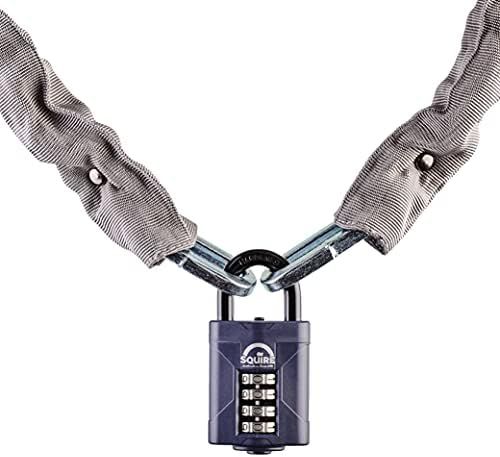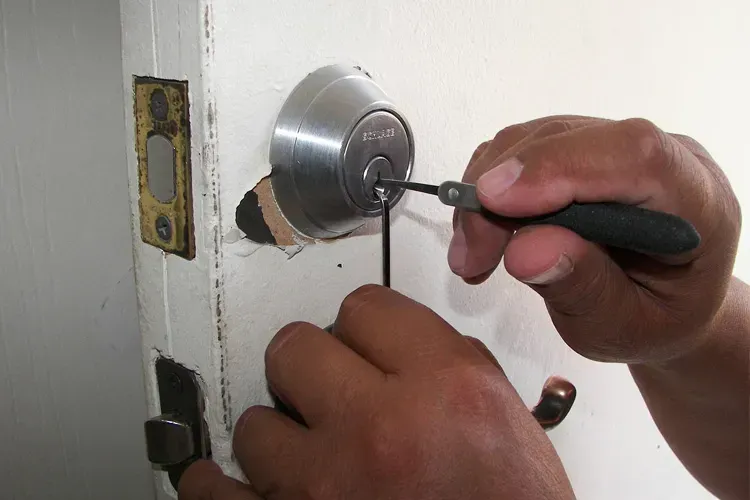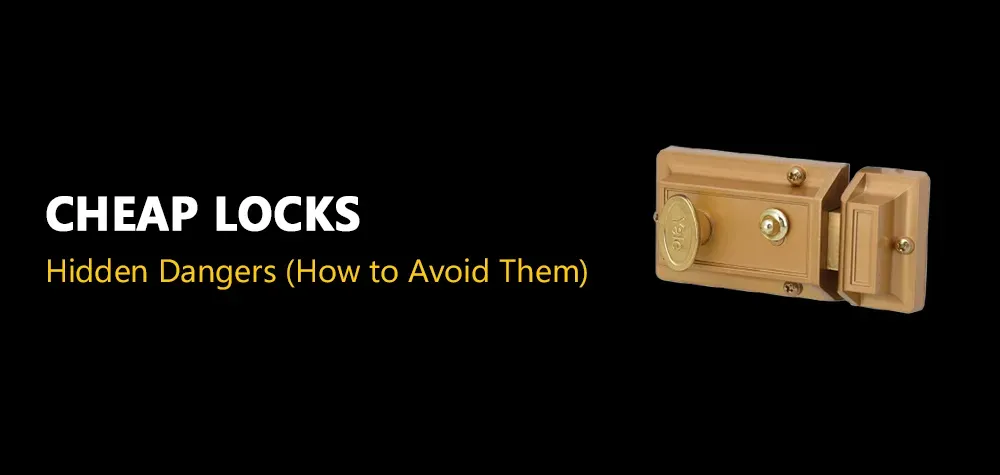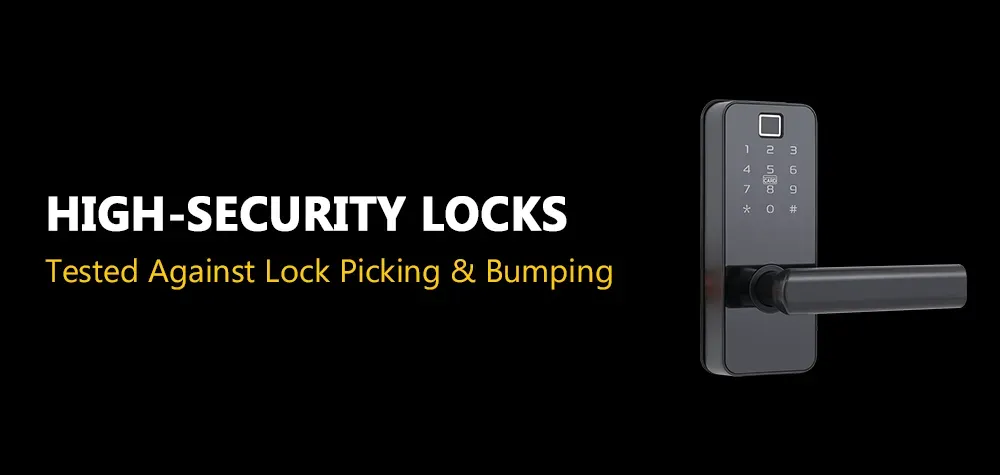Are Biometric Locks Worth It? Pros and Cons
Biometric locks have taken the security industry by storm, promising a new era of keyless, hassle-free, and highly secure access. Unlike traditional locks that rely on keys or PIN codes, biometric locks use unique physical characteristics such as fingerprints, facial recognition, or even retinal scans to grant entry. While this sounds like the perfect security solution, are biometric locks truly worth the investment? Understanding their pros and cons will help homeowners and businesses make an informed decision about whether biometric security is the right choice for them.
Emerging Trends in Smart Locks & Digital Security
The Pros of Biometric Locks
Unmatched Security and Personalization
One of the biggest advantages of biometric locks is their ability to provide personalized security. Since biometric data is unique to each individual, the chances of unauthorized access are significantly reduced. Unlike traditional keys, which can be lost or duplicated, biometric locks rely on identifiers that cannot be easily replicated.
Furthermore, many high-end biometric locks come with encryption features that make it nearly impossible for hackers to steal or forge biometric data. Some advanced models even combine multiple biometric features, such as fingerprint and facial recognition, to add an extra layer of security. This makes biometric locks an excellent option for homeowners and businesses looking for top-tier security solutions.
Keyless Convenience
With biometric locks, you no longer have to worry about carrying keys or remembering complicated passwords. The ease of access is one of the main reasons why people opt for biometric security. Simply placing your finger on a scanner or standing in front of a facial recognition system grants you instant entry. This is especially beneficial in emergency situations when fumbling for keys can cause unnecessary delays.
Moreover, biometric locks allow homeowners to grant access to family members or trusted visitors without the need to issue duplicate keys. Some models even allow remote access through smartphone apps, ensuring greater control over who enters the property and when.
Faster Entry and Automated Access Control
Speed is another major advantage of biometric locks. Unlike traditional locks that require manual operation, biometric systems recognize authorized users almost instantly. This feature is particularly useful in commercial settings where quick and secure access is crucial, such as hospitals, offices, and high-security areas.
Additionally, businesses can benefit from automated access control, where biometric locks keep a digital record of who enters and exits a building. This helps in monitoring employee movement, tracking attendance, and enhancing overall security management.
The Cons of Biometric Locks
Potential Technical Failures
While biometric locks offer cutting-edge security, they are not immune to technical failures. Factors such as dust, dirt, humidity, or even skin injuries can interfere with fingerprint recognition, leading to access issues. Similarly, facial recognition may struggle in poor lighting conditions or if the user’s appearance changes significantly (e.g., growing a beard or wearing glasses).
Power outages or software malfunctions can also render biometric locks unusable. Many high-end models come with backup battery options, but if not properly maintained, users may find themselves locked out at an inconvenient time.
Cybersecurity Risks
As with any digital technology, biometric locks are vulnerable to cyber threats. Hackers may attempt to breach systems and access stored biometric data. Although manufacturers use encryption and advanced security protocols to minimize risks, no system is entirely foolproof.
To mitigate these risks, it’s essential to choose biometric locks from reputable brands that prioritize cybersecurity. Regular software updates and multi-factor authentication can further enhance protection against potential breaches.
Higher Cost and Installation Complexity
One of the main drawbacks of biometric locks is their cost. Compared to traditional locks, biometric systems are significantly more expensive. The initial cost includes not only the price of the lock itself but also the installation, which often requires professional assistance. Additionally, businesses that install biometric access control systems may need to invest in ongoing maintenance and software updates to keep their systems running smoothly.
For some homeowners, the added security and convenience justify the price, while others may find traditional or smart locks more cost-effective and practical.
Expert Recommendations: Are Biometric Locks Right for You?
Experts suggest that biometric locks are an excellent investment for high-security areas, businesses, and individuals who prioritize convenience and advanced security. However, before making a purchase, it’s crucial to assess your specific needs.
For homeowners who simply want a reliable keyless entry system, smart locks with PIN codes and mobile access might be a more affordable and practical option. On the other hand, businesses and high-security environments that require strict access control can greatly benefit from the advanced features of bio metric security systems.
If opting for a biometric lock, it’s essential to choose a model that includes backup entry options, such as a mechanical key or PIN code, to prevent lockouts in case of system failures. Regular maintenance and software updates also play a vital role in ensuring the long-term reliability of biometric locks.
Preventive Measures for Secure Biometric Access
To maximize the benefits of biometric locks, users should take preventive measures to ensure smooth operation and security. Regularly cleaning fingerprint scanners or facial recognition sensors helps maintain accuracy and prevents technical failures. Keeping backup access methods, such as physical keys or security codes, ensures entry in case of emergencies.
Additionally, updating security software regularly minimizes cybersecurity risks and keeps biometric data protected from potential breaches. Choosing high-quality, encrypted biometric systems from reputable manufacturers significantly reduces the likelihood of hacking or unauthorized access.
Conclusion: The Verdict on Biometric Locks
So, are biometric locks worth it? The answer depends on individual needs, security priorities, and budget considerations. While they offer top-tier security, convenience, and fast access, they also come with potential risks, higher costs, and technical vulnerabilities.
For those seeking cutting-edge security solutions and keyless convenience, biometric locks are a game-changer. However, for users who prefer a more affordable and low-maintenance security option, traditional or smart locks may still be the better choice. By weighing the pros and cons, individuals and businesses can make an informed decision on whether biometric locks are the right fit for their security needs.
Call Us Any Time!






